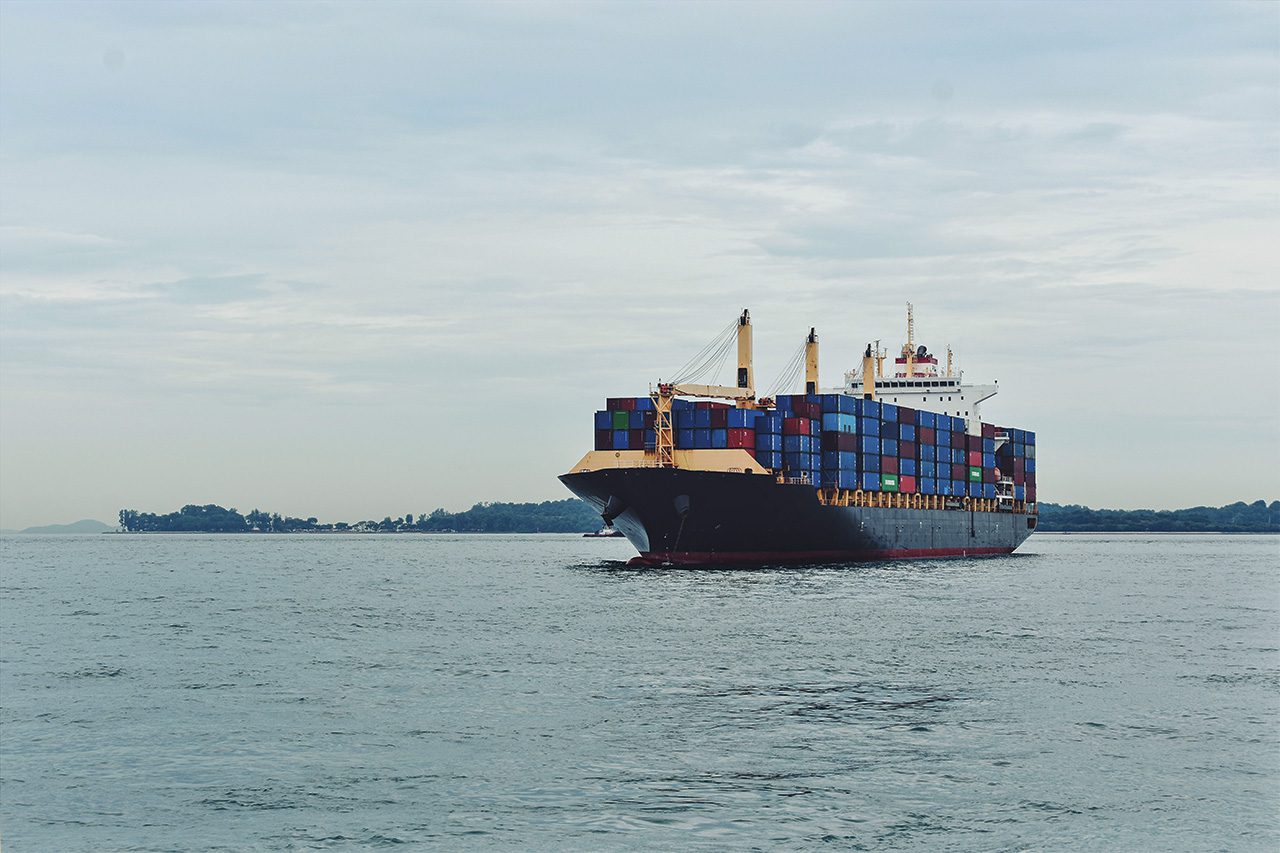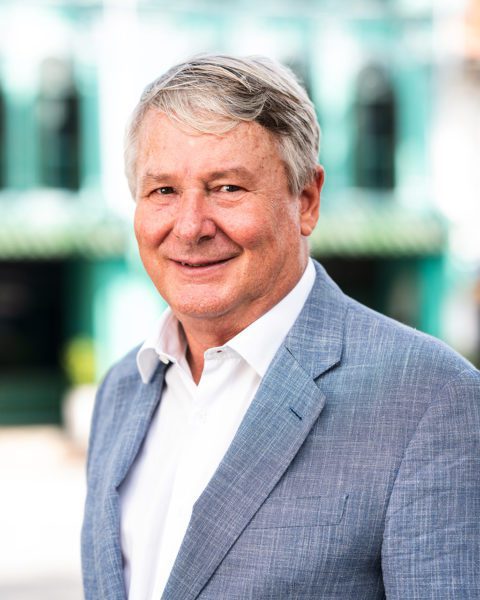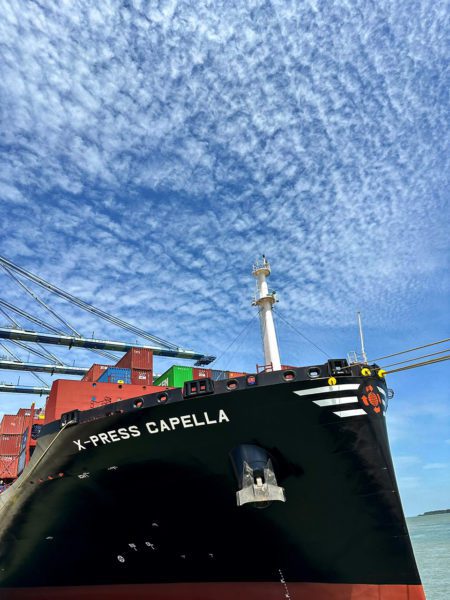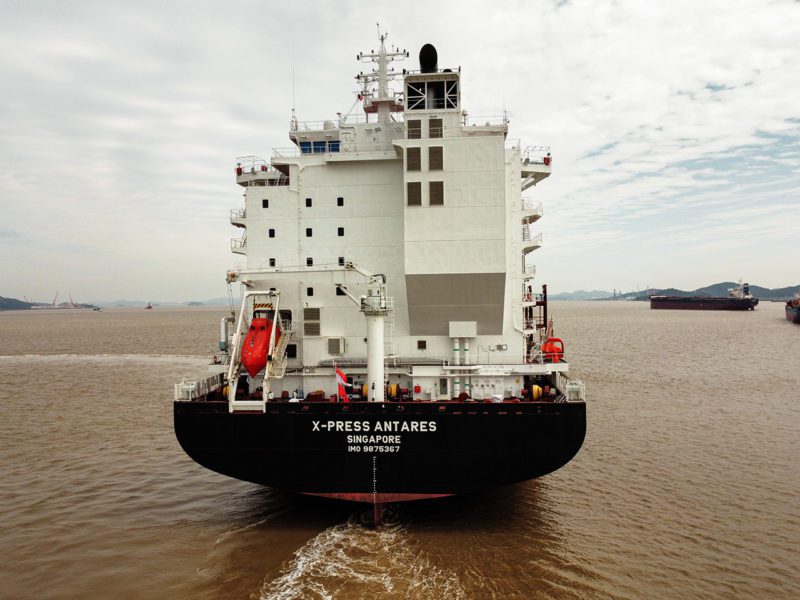Sovereign Seeds: Reclaiming MENA’s Agricultural Future
Reviving local food systems and unlocking rural prosperity
The evolution of X-Press Feeders towards global impact

After inheriting X-Press Feeders from his father, Tim Hartnoll transformed the company into the world’s largest feeder ship operator. Now, as the next generation rises within the firm, he’s noticing a shift in values. “The younger generation, when they go to work for a company, they feel the company has a social responsibility and should be giving back,” he observes. Embracing this perspective, X-Press Feeders is taking a leading role in decarbonizing the shipping industry and supporting social programs, reflecting a commitment to both environmental stewardship and community engagement.

X-Press’s Tim Hartnoll
The journey of X-Press Feeders began in 1972 when Tim’s father, Chris, lost his job and founded Sea Consortium in Singapore to serve as a shipping business agency. During the early years, the company leased containers, container cranes, and ships to facilitate shipments from Singapore and Malaysia to other regions. Chris’s entrepreneurial spirit led him to invest in bulk handling equipment, acquire a stevedoring license at a Malaysian port, establish container services to Dubai, and launch feeder services to Bangkok and various Indian ports.
By the 1980s, X-Press Feeders had achieved significant growth by chartering and operating ships for prominent customers, including APL, SeaLand P & O, and Nedlloyd. The company strategically sold or closed other business lines to focus on the feeder business and began its geographical expansion, establishing a new services hub in Singapore and extending its reach to East Asia.
A pivotal moment in the company’s growth came in 1982 when APL shifted to a hub-and-spoke system, bypassing ports in West Asia, the Gulf, and South Asia. “We provided the feeder service,” Tim explained, and APL quickly became responsible for 80 percent of the company’s business.
Tim joined X-Press in 1982, during a period of robust growth in containerized shipping to northern Europe and the trans-Pacific, as manufactured goods increasingly moved into containers. He collaborated with his father to forge partnerships in Germany and other countries, supporting the company’s expansion into Europe, the Mediterranean, and beyond.
However, a significant setback occurred in 1988 when changes in U.S. regulations led APL to take over the services it had outsourced to X-Press. “We lost 80 percent of our business,” Tim remarked.
Undeterred, Tim played a crucial role in rebuilding the business, leading to a rebranding as X-Press in 1989. By the early 1990s, the company had established a presence at all major Indian ports, handling a remarkable 20 percent of all containers moving in and out of India.

The Capella is one of X-Press’s first 7000 TEU ships, the largest in size to date and signifying the next step in the X-Press decarbonization journey.
Tim succeeded his father as managing director in 1992 and later became chairman in 2012. Under his visionary leadership, X-Press ventured into ship ownership, purchasing its first container ship in 1993. Tim’s strategic expansion continued, extending the firm’s reach to the Mediterranean in 2000, northern Europe in 2004, and Latin America and the Caribbean in 2010.
Today, X-Press boasts a diverse fleet of over 100 ships, including container ships, offshore support vessels, bulk carriers, and a tanker. Tim attributes the company’s success to a customer-centric philosophy. “X-Press had a very simple business as a common carrier. We have stuck to our knitting. Our customers were the big shipping lines. We relied on customers like Maersk and COSCO to outsource distribution of containers to independent carriers like us. We’ve grown to be the largest operator in the world,” he explained.
Tim’s eldest son, Alexander, joined the business in Europe in 2014 and returned to Asia around 2016. His gradual ascent through the company has brought fresh perspectives. “He is from a generation enthused about social issues,” Tim noted, acknowledging that he initially underestimated the impact of such concerns. X-Press has enhanced its social responsibility programs, including funding schools in the subcontinent and producing an annual report that has received praise from banks, and Alexander has taken over the social responsibility portfolio.
Reducing carbon emissions is a priority for X-Press, and the company is at the forefront of the push for decarbonization in the shipping industry. Initiatives include setting up a unit in Bombay to explore emission reduction and operational efficiency, building 16 dual-fuel ships, and negotiating contracts for methanol in a zero-emission corridor. Tim also advocates for the International Maritime Organization (IMO) to implement a carbon tax to equalize fuel costs. Collaborations with customers like Maersk and Evergreen, who share a focus on sustainability, have created a competitive advantage for X-Press. The company is also building 34 highly efficient ships and funding a five-year research program at Warwick University, Tim’s alma mater, to develop ammonia-based fuel cells. “We are putting our money where our business is,” Tim declared.

X-Press Antares Cargo Ship
Looking to the future, Tim envisions his eldest son ascending to the top of the container business and becoming the principal owner within a decade. He has also diversified the business, establishing a venture capital fund run by his second son and purchasing two hotels. Tim acknowledges the growing complexity of the business, with challenges such as political sanctions and the necessity of sustainability reporting for bank loans. Participation in the Family Business Network has provided valuable support and insights.
Despite the complexities, the business remains rewarding. X-Press is not only a top-level transporter of goods but also a force for positive change. By embracing new social goals and leading efforts to mitigate climate change, X-Press is making a substantial impact, helping to decarbonize an entire industry.
Related Content
Comments
Deep Dives

Featuring
Clarisse Awamengwi
IE Correspondent
July 17 - 12:00 PM EST

Featuring
Russell McLeod
July 24 - 12:00 PM EST
RECENT
Editor's Picks
Webinars
News & Events
Subscribe to our newsletter to receive updates about new Magazine content and upcoming webinars, deep dives, and events.
Become a Premium Member to access the full library of webinars and deep dives, exclusive membership portal, member directory, message board, and curated live chats.
At Impact Entrepreneur, we champion fearless, independent journalism and education, spotlighting the inspiring changemakers building the Impact Economy. Diversity, equity, sustainability, and democracy face unprecedented threats from misinformation, powerful interests, and systemic inequities.
We believe a sustainable and equitable future is possible—but we can't achieve it without your help. Our independent voice depends entirely on support from changemakers like you.
Please step up today. Your donation—no matter the size—ensures we continue delivering impactful journalism and education that push boundaries and hold power accountable.
Join us in protecting what truly matters. It only takes a minute to make a real difference.
0 Comments